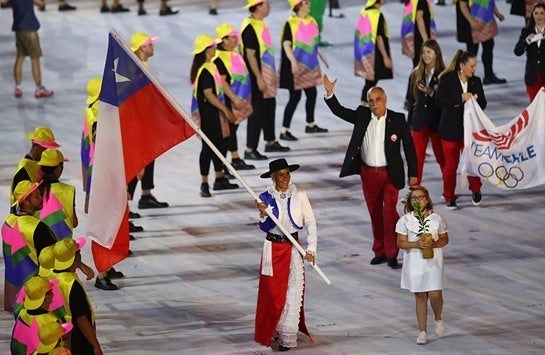
In 2018 Chile had a population of 18.6 million people in 6.1 million households, with national television penetration at 95.8 per cent of households.
Six major free-to-air (FTA) television networks compete in a market with shrinking audiences and declining advertising revenues. However, FTA television continues to be the medium that concentrates the largest investment in advertising, accounting for 35.4 per cent of all spending. In real pesos, the investment reaches CPL283.0 billion ($436 million), 2.6 per cent less than 2016.
The National Television Council (CNTV) is the primary regulator of television content in Chile. The technical aspects are regulated by the Undersecretariat of Telecommunications (Subtel), a division of the Ministry of Transport and Telecommunications.
Chile’s transition to digital broadcasting has been hampered by several delays. The government formally approved the Japanese ISDB-T standard for digital terrestrial television (DTT) in 2010 and enacted the digital television law mid-2014 to address the transition process in order to complete the analogue switch-off by the end of 2020. The implementation schedule for digital television aimed to cover at least 15 per cent of the population by early 2018, but that goal has not been met. This has led to Chile’s free-to-air television channels, through the National Television Association (ANATEL), calling for an extension of the analogue switch-off date by two years, due to the delay in the implementation of digital technology.
The most important players in the free-to-air television segment in Chile, and with the largest audience shares, are the public broadcaster, Televisión Nacional de Chile (TVN), and the three commercial television stations, Mega, Chilevisión and Canal 13.
State-owned TVN, once the most popular station in Chile, has lost its ratings lead to rival free-to-air channels. TVN is the only public television service in Latin America that is not publicly funded, but financed solely through advertising and other television services, which means that it needs to compete with commercial channels for revenue and for an increasingly elusive audience.
How well do you really know your competitors?
Access the most comprehensive Company Profiles on the market, powered by GlobalData. Save hours of research. Gain competitive edge.

Thank you!
Your download email will arrive shortly
Not ready to buy yet? Download a free sample
We are confident about the unique quality of our Company Profiles. However, we want you to make the most beneficial decision for your business, so we offer a free sample that you can download by submitting the below form
By GlobalDataTVN, along with Canal 13, have landed joint rights in Chile to the 2019 Copa América, the men’s international soccer competition to determine the continental champions of South America.
TVN was one of three free-to-air broadcasters to cover the 2018 Fifa World Cup in Chile, having signed a sub-licensing agreement with Mountrigi, the management group who acquired broadcast rights in the region from FIFA. Previously, TVN had held the free-to-air rights for the 2016 Olympic Games in Rio de Janeiro and rights for the 2015 Copa América, the international men’s football tournament contested between national teams from CONMEBOL.
Commercial broadcaster Mega has been the most watched free-to-air channel in Chile since 2014. It remains the leader in terms of weekly reach and is home to many of the most popular programmes and the most watched news broadcast. In June 2016, Discovery, the US media giant, acquired a 27.5 per cent stake in Bethia Comunicaciones, the owner of the channel.
Mega was one of three free-to-air broadcasters to cover the 2018 Fifa World Cup in Chile. Preceding this, Mega had acquired the exclusive rights to the national soccer team’s qualifying matches for the tournament, as well friendly matches, from 2014 to 2018, paying a record $106-million rights fee.
Chilevisión, the second most popular television station, was acquired by Turner Broadcasting System, a Time Warner company, in 2010 in a deal worth an estimated $150 million.
Chilevisión has acquired the rights to show the national soccer team’s qualifying matches for the 2022 Fifa World Cup. The deal is reported to be worth $120 million.
Chilevisión has also secured the rights to the Pan American Games 2019, the world’s third largest international multi-sport games.
Canal 13, formerly called Universidad Católica de Chile Televisión, is owned by Luksic Group, one of Chile’s largest conglomerates.
Canal 13, along with TVN, have landed joint rights to the 2019 Copa América.
Canal 13 was one of the three free-to-air broadcasters to cover the 2018 Fifa World Cup in Chile. Previously, the broadcaster had held the domestic television rights to the 2015 Copa América, agreeing to pay in the region of $12 million.
Key sports rights in Chile
Sportcal







